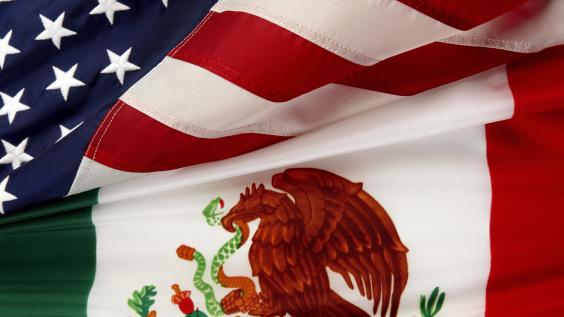Mexico Took a US Asset — With Barely a Whimper From the Biden Administration

Table of Contents
Author(s)
Share this Publication
- Print This Publication
- Cite This Publication Copy Citation
Gary J. Hale, "Mexico Took a US Asset-With Barely a Whimper From the Biden Administration" (Houston: Rice University’s Baker Institute for Public Policy, March 31, 2023).
On March 14, Mexican judicial officials and marines forcibly seized a port facility at Punta Venado in Quintana Roo, Mexico. The facility is legally owned by Vulcan Materials Co., an American construction materials company based in Birmingham, Alabama.
In other words, Mexico used armed force to expropriate, seize, operate and control a commercially sovereign asset for the purposes of, ostensibly, truncating differences in a commercial contractual arrangement and profiting from the assets of an American company.
With little perceived pushback from President Biden's administration, Mexico seized an opportunity to grab what it views as its national patrimony — i.e., sovereign ownership of natural resources that are there for the taking (or the leasing, whichever is most beneficial to the government and its corrupt cronies). But Mexico should not misunderstand the Biden administration's soft, almost inattentive approach to the affront.
If Mexico has determined that possession of the Vulcan facility is a national security issue, then it should worry that its justification for the seizure is feeding into the rhetoric of some right-wing members of U.S. Congress, who are pushing for armed intervention against the same cartels that are undoubtedly behind some of the maneuverings at Punta Venado.
If Mexican government officials are later found to have worked with the country’s transnational criminal organizations to take the Vulcan port, President Andrés Manuel López Obrador may have inadvertently provided hawkish U.S. lawmakers with justification to pursue a forcible American response, one that could create unintended blowback for Mexico and result in consequences beyond administrative penalties or sanctions under the United States-Mexico-Canada Agreement.
There have been similar disputes throughout the shared commercial history of the U.S. and Mexico. Some resulted in the U.S. military intervening in Mexican territory to preserve American interests and property. The Vulcan incident is reminiscent of a similar event in 1906, which involved the unexpected takeover of a U.S.-owned copper mine in Cananea, Sonora, and rattled both countries. The mine owners asked the U.S. for military assistance, and in response, U.S. civilians and armed members of the Arizona National Guard took the mine back from rioters.
The Sonora intervention was seen as a justified U.S. military incursion, given its circumstances. It is strikingly similar to the Vulcan seizure in that a U.S. national interest required the use of American military forces to forcibly recover a legally owned U.S. asset in Mexico.
The seizure of the Vulcan facility could be seen as a direct threat to U.S. national security interests, since the export of raw materials by Vulcan to the U.S. has been conducted lawfully and under contract. Additionally, the materials are used to build and maintain infrastructure in the U.S. — a long-term and vital national need.
The United Nations Security Council often criticizes governments led by tyrants who do not behave in the way of civilized nations. With the seizure of the Vulcan plant, Mexico’s president has now joined that long list of tyrants.
But tyrants beware — the U.S. has a long memory and is not beyond extraterritorial action when and where warranted.
This material may be quoted or reproduced without prior permission, provided appropriate credit is given to the author and Rice University’s Baker Institute for Public Policy. The views expressed herein are those of the individual author(s), and do not necessarily represent the views of Rice University’s Baker Institute for Public Policy.
